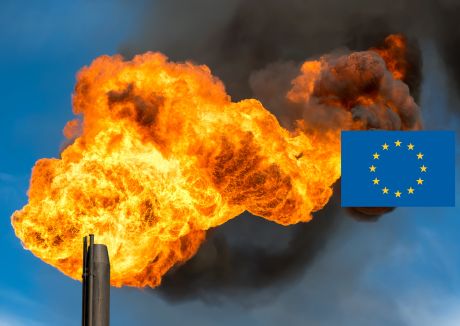The Biden administration’s pause on LNG exports to non-FTA countries has introduced fundamental uncertainty to the country’s gas sector.
Couched in a review of current approval methodology by the Department of Energy (DoE), the move would overall aim to draw in wider implications, including the potential impact on the cost of energy for American consumers and manufacturers, or the climate impact of associated greenhouse gas (GHG) emissions.
Most immediately, four projects with DoE applications for export stand to be impacted: Commonwealth LNG (9.3 mtpa capacity), Port Arthur LNG Trains 3 and 4 (13.5 mtpa), Lake Charles LNG (17.8 mtpa) and Magnolia LNG (8.8 mtpa). Others, like Venture Global’s Calcasieu Pass 2 (CP2) project, will also find themselves in the same situation if and when they obtain FERC approval and apply for DoE approval.
However, the consequences — of an extended pause or a substantially tightened DoE approval process — could be much wider.
Currently, 18 projects have received DoE approval for the export of approximately 240 mtpa to non-FTA countries. Each approval stipulates that first exports must take place before a specified date. Assuming a construction period of four years, roughly 110 mtpa of capacity may have difficulty complying with this requirement and would therefore need to apply for an extension. This includes plants like Mexico Pacific, and the likes of Delfin LNG, which have not yet taken FID.
Three red flags
This already points to three uncertainties arising from the recent announcement: how long the pause to approvals will be, how the application review methodology will change and whether it will be applied to requests for approval extensions rather than new requests only.
The US government’s original notice on the pause was brief and without any further clarity around the criteria relating to new methodology or indication for when a new regime would be in place.
Unsurprisingly, there are now more questions. The US noted it “remains unwavering” in its commitment to supporting its allies. It reiterates its ability to supply LNG to Europe through existing LNG production infrastructure but does not confirm that additional capacity will be approved if it contributes to Europe’s security of supply. It does not confirm how a test of contribution to security of supply would be applied.
And, given the DoE’s review to address inclusion of climate impacts, there is no confirmation that the role of gas in helping countries reduce coal consumption will be taken into account.
This pause is just that: a temporary pause. It may come to very little and will most likely come to nothing if the Republican candidate wins the next presidential election.
Costs, funding snags
However, it adds to mounting pressure on the US LNG industry and is causing more consternation than it otherwise would do. US LNG project developers face a triple whammy of rising materials and labour costs, buyers with low price expectations, and rising financing costs amplified by the increasing reluctance of lenders to finance fossil-fuel projects.
Project developers are aware that they have a limited time window in which to get their projects to market before global demand begins to wane, and politically motivated delays do not help.
Timing impacts
Beyond this, the implications for LNG projects and their customers will likely be project specific.
Many have locked-in EPC contractors on the wrong side of inflation, and contractors with sunset clauses will likely consider reopening their contracts, potentially with knock-on consequences for offtakers.
Offtakers themselves might look for ways to exit or renegotiate their SPAs if their market views turn more bearish in the interim. For instance, TotalEnergies had to halt development of its Mozambique LNG project in 2021 for security reasons; subsequently, Indonesia’s Pertamina cancelled a 1 mtpa, 20-year offtake agreement, although it did not publicly confirm its reason. Customers of US projects may now be thinking the same thing.
Projects lacking a well-funded investor may struggle to sustain themselves during this period of uncertainty. Private equity backers may reconsider the economic rationale of continued investment relative to the other sectors in which they operate.
Buyers currently negotiating for long-term LNG supply will need to take these factors into account when deciding which potential suppliers to focus on.
Sourcing LNG amid moratorium
Gas Strategies estimates that the global LNG market will grow another 400 to 550 mtpa on top of the 435 mtpa exported in 2023, peaking around 2040. A further 80 to 90 mtpa will be required to replace LNG production declines in existing plants. Of this total, approximately half would come from the US. Given that 82 mtpa is currently under-construction in the USA (and assuming that this capacity will not be unapproved by the DoE), this implies another 160 to 225 mtpa of capacity from US projects that have DoE approval but have not taken FID or are still to be approved.
If a substantial amount of this capacity is not approved, it is not clear where buyers will be able to source the LNG they need. Qatar has a lot of uncontracted capacity under development, but this is largely already accounted for in the 50% of LNG production capacity growth from non-US projects. Projects in East Africa and Russia are facing their own challenges are will not likely be able to make up a large shortfall. We could instead see higher LNG spot prices in the early 2030s and a sooner-than-expected plateau in LNG production.
LNG buyers currently in the market for LNG may now have to add another dimension to their negotiations. If and when the DoE introduces a revised assessment methodology, buyers will need to consider how likely it is that their presumptive counterparty will obtain DoE approval. That approval may even hinge on what the buyer brings, in terms of an energy security or energy transition narrative.
Given that the Biden administration’s move is an attempt to push this issue beyond the next election, it is likely to be several more months before we get a definitive answer to these questions.
Get in touch today to find out more about how Gas Strategies can support your organisation with any of the points in this blog or regarding any aspect of the energy transition. Contact us.








